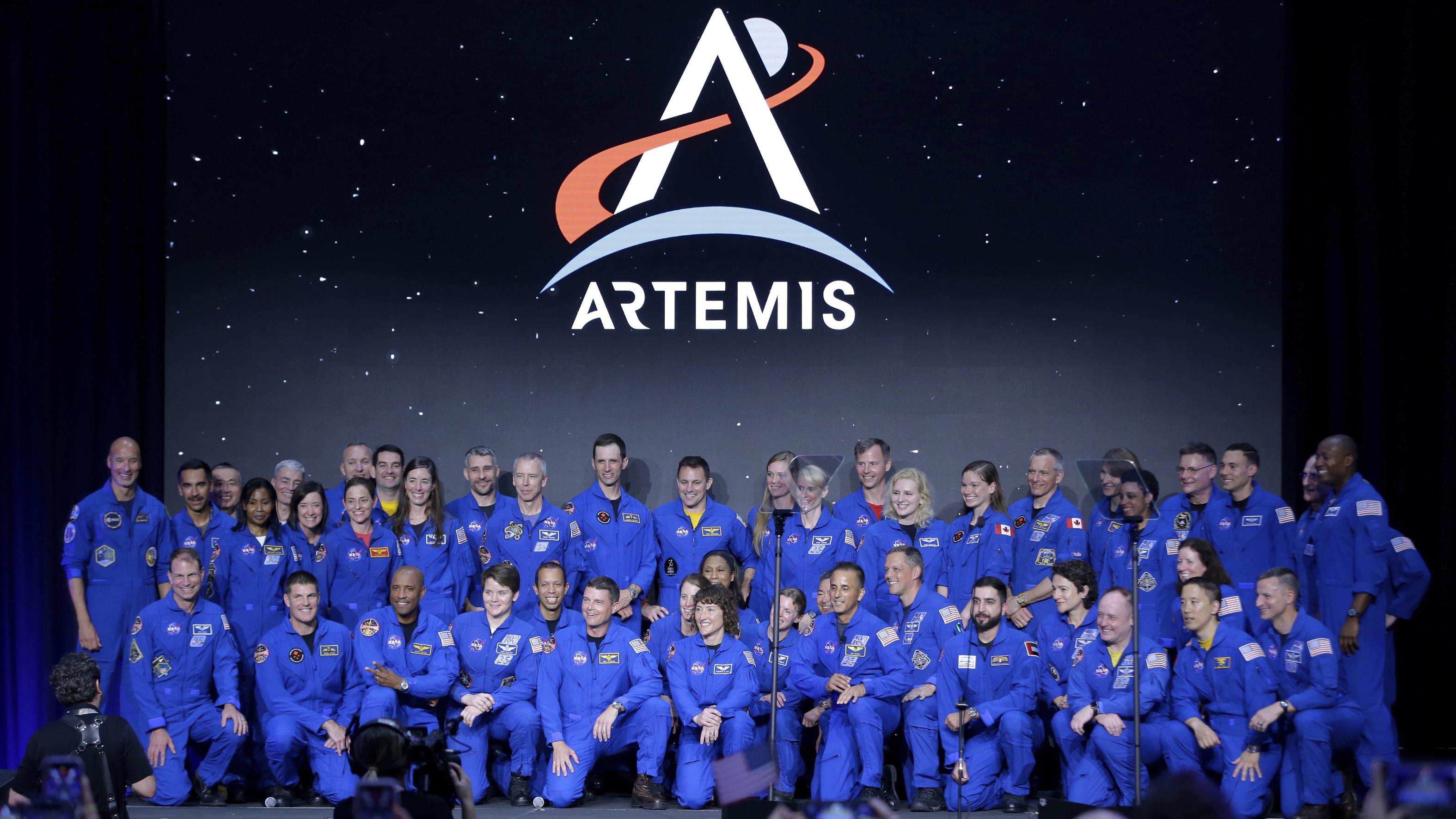 The 40 astronauts eligible for the Artemis II mission gather on stage for a photo after the announcement of the four Artemis II crew members in Houston, on April 3, 2023. (PHOTO / AP)
The 40 astronauts eligible for the Artemis II mission gather on stage for a photo after the announcement of the four Artemis II crew members in Houston, on April 3, 2023. (PHOTO / AP)
WASHINGTON - NASA is set to delay its next few missions to the moon under a key program as technical hurdles mount with the various spacecraft it intends to use to get there, according to four people familiar with NASA's plans.
The US space agency is expected to announce the plans on Tuesday after spending months tracking progress with contractors and considering changes to the Artemis program, a multi-billion dollar effort that includes returning the first astronauts to the moon since the last Apollo mission in 1972.
NASA's second Artemis mission is expected to be pushed beyond its planned late-2024 target after issues were uncovered with the Lockheed Martin-built Orion crew capsule's batteries during vibration tests, two of the people said. The batteries will need to be replaced.
Senior NASA officials in recent months have been mulling plans to move the inaugural Artemis astronaut landing to the fourth mission, giving SpaceX and other contractors more practice before making the first such landing in half a century
This would have been the first flight with humans aboard after launching the capsule uncrewed atop NASA's Space Launch System in a 2022 inaugural test.
READ MORE: SpaceX Dragon cargo spacecraft back to Earth with samples
Artemis 3 - planned to be the first mission landing humans on the moon in late 2025 using the Starship landing system from NASA contractor SpaceX - will likewise be pushed back. Billionaire Elon Musk's SpaceX is taking longer than expected to reach certain development milestones, all four people said.
NASA declined to comment. Lockheed and SpaceX did not immediately return requests for comment.
Senior NASA officials in recent months have been mulling plans to move the inaugural Artemis astronaut landing to the fourth mission, giving SpaceX and other contractors more practice before making the first such landing in half a century.
READ MORE: First US moon lander in 50 yrs lifts off on private mission
NASA officials presented that option to the agency's senior leadership last month, but it could not be determined if it chose that path. It was also unclear what the new target dates for the initial Artemis missions would be.
NASA's Artemis program relies heavily on private companies. It will use the Boeing and Northrop Grumman-led Space Launch System to loft humans off Earth, Lockheed's Orion capsule to propel them toward the moon and SpaceX's Starship to take them on and off the lunar surface.
Billionaire Jeff Bezos' Blue Origin is also developing an astronaut lander for later missions.
ALSO READ: Japan billionaire Maezawa's trip to moon delayed to 2024 or later
Complex development milestones with SpaceX's giant Starship system include the company's plan to refuel Starship at an orbital propellant depot before the ship can take humans to the lunar surface and launch them back with enough fuel.
NASA is eager to see SpaceX make progress on the orbital refueling plan, seeing it as a potential bottleneck that entails the delicate transfer of thousands of gallons of supercooled, flammable propellants in orbit, three of the people said.


